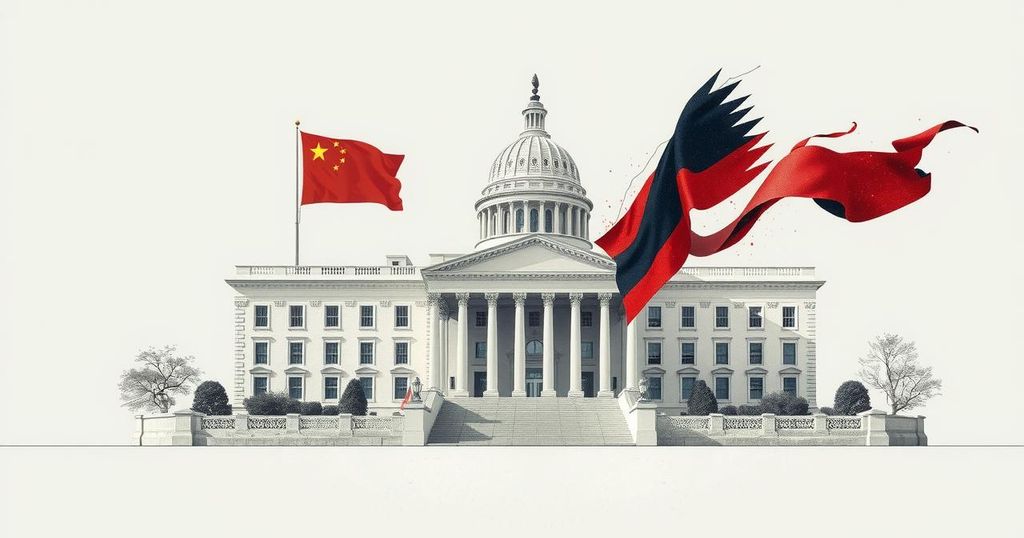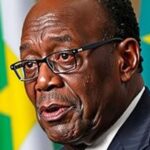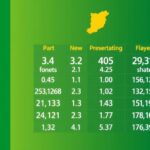Cameroon: Analyzing Paul Biya’s Expected Candidacy for an Eighth Term
Cameroon is poised for elections with President Paul Biya likely running for an eighth term despite concerns over his age and health. His leadership spans over 42 years, during which economic difficulties and civil unrest have emerged. Coalition politics dominate the current political landscape, with the opposition’s fragmented state posing challenges for potential change. Recent calls by religious leaders for improving national conditions reflect the need for political reform.
In 2025, the Central African nation of Cameroon is expected to feature 91-year-old President Paul Biya on the ballot for an unprecedented eighth consecutive term. Biya, who has been in power for over 42 years, is poised to become the longest-serving leader in Africa. Despite concerns regarding his health, members of Biya’s Cameroon People’s Democratic Movement (CPDM) have expressed unwavering support for his candidacy. Political commentator Dr. John Akpo stated, “There is no doubt about President Paul Biya’s candidacy for the next election.”
Biya’s age has sparked debates about his ability to govern effectively, particularly in light of a civil war that has plagued the Anglophone regions of the country. Critics argue that his advanced age hinders his capacity to address crises and engage with citizens in affected areas. Opposition lawyer Tamfu Richard shared concerns, saying, “He’s unable to go to those zones due to his age.”
The ruling CPDM relies significantly on coalition partners, particularly the Democratic Movement for the Defense of the Republic (MDR) and a faction of the Union of the Populations of Cameroon (UPC), to maintain its parliamentary majority. Although support for these coalition parties has diminished, they remain essential to the government. The emergence of a coalition known as “G20” in 2018 was a strategic move countering the influence of opposition leader Maurice Kamto, who is seen as a potential successor to Biya.
Recently, local media reported that Catholic bishops in Cameroon called for an improved political situation. While some claimed the bishops demanded Biya’s resignation, others, like Diocese of Buea communications director Solomon Lyonga, clarified that the bishops urged the government to enhance living conditions for citizens, not to dethrone the president. Such statements from the Church can significantly sway public opinion in a predominantly Catholic nation.
Despite minor economic recovery signs in Cameroon, growth rates remain modest, with a decline in GDP growth noted by the World Bank. A combination of inflation, fiscal challenges, and ongoing conflicts is contributing to this stagnation. Furthermore, corruption remains deeply entrenched in governance, with Akpo stating, “Corruption is at the bone marrow of every political being in Cameroon.”
Cameroon grapples with systemic issues such as poor infrastructure and dependency on commodity exports, essential areas that must be addressed for sustainable economic development. However, under Biya’s extended presidency, questions arise about whether significant reforms can be implemented. The fragmented opposition, suffering internal strife, continues to struggle to present viable alternatives to Biya’s rule with Michele Ndoki remarking, “The question is whether or not he’s able to perform his duty as the president of the republic.”
Cameroon, a country in Central Africa, is facing a pivotal moment in its political landscape as President Paul Biya prepares for another term in office. Having ruled for more than four decades, his potential candidacy raises questions about the stability and future direction of the nation. The ongoing civil unrest in Anglophone regions and the economy’s struggles indicate underlying tensions within the country that could impact any forthcoming election. Biya’s advanced age also raises concerns about his capacity to govern during turbulent times while a fragmented opposition fails to provide a clear alternative.
The impending elections in Cameroon highlight a complex interplay of political loyalty and public discontent surrounding President Paul Biya’s extended reign. Despite challenges such as economic stagnation and civil unrest, Biya’s party appears resolute in supporting his candidacy. Criticism from opposition figures suggests that confusion and lack of alternatives may inhibit meaningful change. The outcome of these elections will likely shape the future of governance in Cameroon, with pressing issues awaiting resolution.
Original Source: www.dw.com








Post Comment